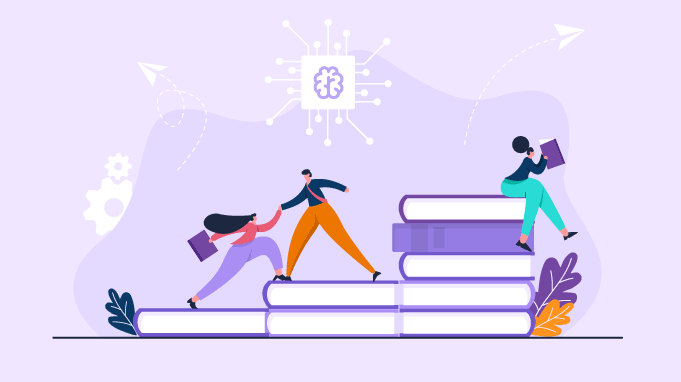Embracing the Value of Lifelong Learning
In an ever-evolving world shaped by rapid technological advancement and shifting societal expectations, the importance of continuous learning and development cannot be overstated. Learning no longer ends with a diploma or degree—it’s a lifelong commitment. Whether you are a student, a professional, or a retiree, actively engaging in learning enhances personal growth, professional success, and long-term adaptability.
Stagnation in skills and knowledge is risky in the modern landscape. People who embrace continuous learning remain competitive, open-minded, and better equipped to solve problems creatively.
Staying Relevant in a Competitive Workforce
One of the most pressing reasons to prioritize ongoing development is to stay relevant in the workplace. Industries are constantly being transformed by emerging technologies like artificial intelligence, robotics, and automation. Jobs that existed a decade ago have evolved or disappeared, while entirely new roles are emerging.
Professionals who keep learning—through online courses, certifications, workshops, or self-guided study—are more likely to meet the demands of employers. Employers today value candidates who demonstrate curiosity and a willingness to adapt.
By updating your skills regularly, you not only protect your employability but also increase your chances of advancing into leadership or specialized roles.
Boosting Personal Confidence and Self-Worth
Continuous learning isn’t just about professional survival—it’s about personal empowerment. Acquiring new skills, understanding complex topics, or mastering a new tool often brings a deep sense of accomplishment.
This success boosts self-confidence and enhances your sense of purpose. It reminds you that growth is possible at any stage in life and that you’re capable of navigating change. With each learning milestone, your belief in your own abilities grows stronger.
For many, this feeling spills over into other areas of life, fostering a more proactive and resilient mindset.
Encouraging Adaptability and Innovation
In both personal and professional contexts, life rarely unfolds as planned. Challenges arise unexpectedly, and those who have cultivated the habit of learning are better prepared to pivot.
Lifelong learners are generally more adaptable because they view problems as opportunities to grow rather than as barriers. They’re also more likely to seek out creative solutions and question traditional methods.
This mindset is vital for innovation. Whether you’re running a business or managing a household, the ability to try new approaches and evaluate outcomes objectively begins with a curious and learning-oriented attitude.
Expanding Worldview and Cultural Understanding
Continuous learning exposes you to new ideas, cultures, histories, and philosophies. Through reading, courses, or global conversations, you can develop a broader understanding of the world around you.
This expanded worldview encourages empathy, reduces biases, and improves communication skills. In a multicultural world, this knowledge is a powerful tool for building meaningful relationships and working effectively across diverse environments.
People who engage in lifelong learning often exhibit greater cultural sensitivity and a more inclusive perspective on global issues.
Enhancing Mental Agility and Cognitive Health
Just as physical exercise strengthens the body, intellectual activity sharpens the mind. Engaging in learning activities—such as solving puzzles, learning a new language, or attending lectures—stimulates the brain and improves mental agility.
Studies suggest that lifelong learning can delay cognitive decline and keep the brain healthier as we age. By continuing to challenge your mind, you increase memory retention, problem-solving skills, and overall brain function.
For older adults especially, mental stimulation through learning offers a powerful defense against age-related mental decline.
Leveraging Technology for Self-Directed Learning
Today, learning is more accessible than ever thanks to digital platforms. You can take courses from global universities, watch tutorials, join webinars, or read research articles—all from a mobile device or computer.
- Online platforms like Coursera, Udemy, and LinkedIn Learning offer affordable and flexible options
- Podcasts, audiobooks, and documentaries support learning on the go
- Virtual communities and forums enable you to engage in global dialogue on shared interests
This digital revolution empowers self-directed learners to set their pace, follow their interests, and build skills without geographical or financial constraints.
Improving Career Satisfaction and Job Performance
Employees who continuously build their skills and knowledge tend to be more engaged in their work. Learning new tools, exploring emerging trends in your field, or taking part in cross-functional projects can breathe new life into your daily routine.
This sense of progress not only makes work more fulfilling but also improves job performance. You become more resourceful, efficient, and insightful. Over time, this can lead to promotions, increased responsibility, and higher satisfaction with your career path.
Employers are also more likely to invest in individuals who take initiative in their own development.
Strengthening Goal-Setting and Motivation
Learning something new often begins with setting a clear goal—whether it’s earning a certificate, mastering a hobby, or improving a professional skill. The process of planning, staying disciplined, and achieving results fosters a sense of progress.
This cycle boosts intrinsic motivation and reinforces the idea that consistent effort brings tangible rewards. With each accomplishment, you train your brain to set and pursue higher objectives, creating a loop of continuous self-improvement.
Conclusion
In a fast-moving world, continuous learning and development are no longer luxuries—they are necessities. The ability to adapt, grow, and explore new knowledge is the foundation for a successful, fulfilling life.
From expanding your worldview and improving mental health to staying competitive in the workforce and boosting personal confidence, the benefits are both wide-ranging and deeply transformative.
By embracing learning as a lifelong journey, you not only prepare yourself for the future—you actively shape it.



